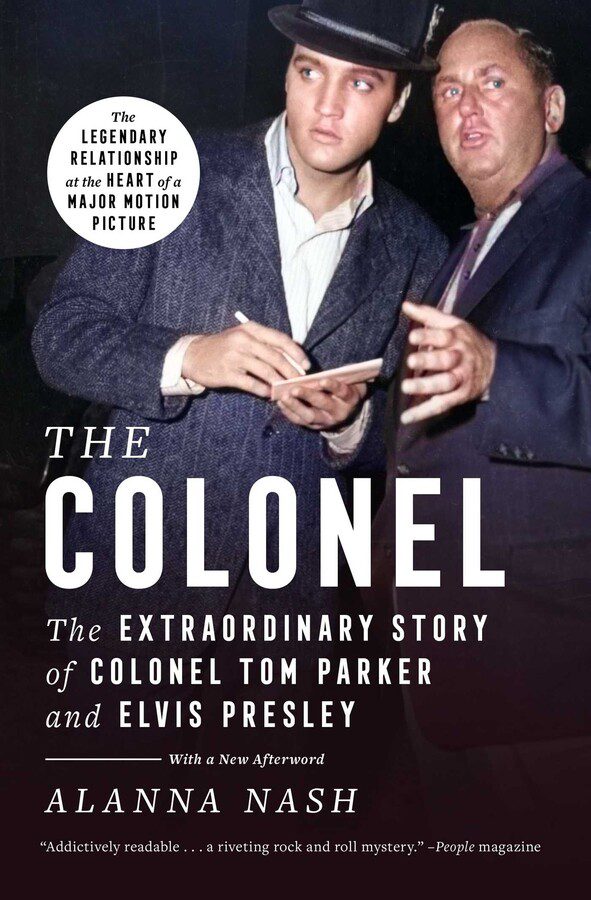REVIEW: The Colonel: The Extraordinary Story of Colonel Tom Parker and Elvis Presley

Though Elvis Presley’s transformation from unknown Southerner to eternal icon is endlessly fascinating, the story of his manager, “Colonel” Tom Parker (the title was honorary), is at least as intriguing. While Presley’s metamorphosis was played out in the public eye, Parker’s took place largely behind the scenes. And though Presley’s life was scrutinized from virtually every angle both before and after his death, Parker managed to shield his own secrets from prying eyes for 50 years.

Nash’s biggest revelation — or speculation — addresses one key aspect of Presley’s career: Why did he never tour outside the United States? Once it was revealed that Parker was in fact Andreas van Kuijk, an illegal Dutch immigrant (a fact that reached the general public in Albert Goldman’s infamous biography, Elvis), conventional wisdom had it that because Parker had no passport, he couldn’t leave the country, and so wouldn’t allow Presley to do so. Nash points out that a man with Parker’s influential political contacts, eventually including President Lyndon B. Johnson, could have sorted out that matter easily. Given the astronomical sums Presley was offered to tour overseas, there was plenty of incentive to do so.
Nash posits that when Parker left Holland in 1929, he was escaping from a murder he’d committed in his hometown of Breda. Though conceding there’s no hard evidence to tie Parker to the crime, tantalizing hints place Parker at the scene and provide a rationale for his later behavior, both at the time (disappearing from the country without a word to anyone, leaving behind all his money and identification) and in subsequent years, when he did his best to avoid attracting the attention of government authorities (never applying for citizenship, never seeking deductions in his taxes).
That’s just one element in the most detailed look at Parker’s pre-Presley years to date. Nash unearths new facts (Parker’s army stint ended with a stay in a mental hospital, where he was diagnosed as psychotic) and explodes a few myths (Parker’s claim that he invented the “dancing chicken” attraction at carnivals, where luckless birds “danced” on a hot plate).
By the time Parker meets Presley in the mid-’50s, Nash has established him as a man whose sole allegiance was to the bottom line, which is precisely what made him such a danger to an artist such as Presley. When a manager has more interest in generating profit than in developing talent, that talent will inevitably wither — a process in which Presley was sadly complicit. (Asked by a reporter if it was true that Parker took half of Presley’s earnings, Parker replied, “No…he takes 50 percent of everything I earn.”)
The Colonel is a gripping, at times unnerving, portrait of a man who will forever remain a contradiction: a man who brought rock ‘n’ roll to the mainstream but never liked the music, a man who spent more time reinventing himself than any of his clients, and a man whose obsession with control still couldn’t keep his greatest creation from self-destruction.




